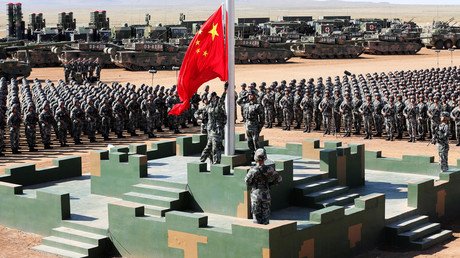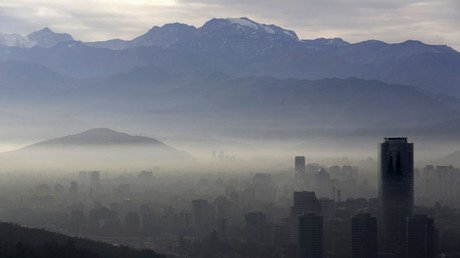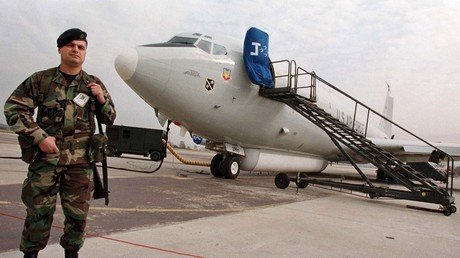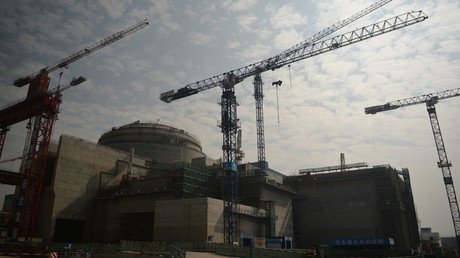USS Carl Vinson in Vietnam port: Americans hammer out new scheme to deter China
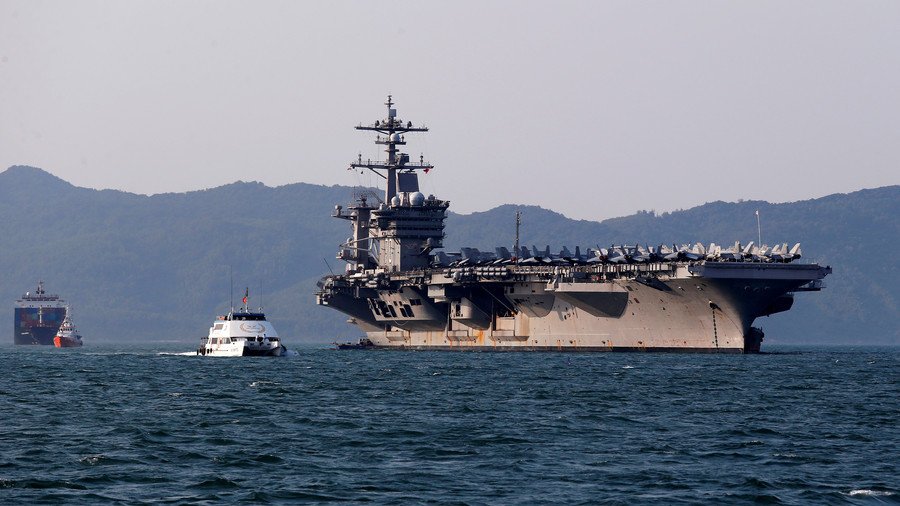
The arrival of an American aircraft carrier in Vietnam indicates Washington’s intention to make the country a part of its new anti-Chinese block, which also includes Japan, Australia and India, an expert on Asia told RT.
USS Carl Vinson and two other US Navy vessels were greeted in the port of Danang on Monday, marking the largest American military presence in the country since the Vietnam War in 1955-1975.
The five-day visit of the 103,000-ton aircraft carrier is “a minor provocation against China...aimed at inciting or strengthening the anti-Chinese moods among the Vietnamese,” said Yury Tavrovsky, a professor at the Peoples' Friendship University of Russia.
He added that the countries have overlapping territorial claims in the South China Sea and a history of military conflicts, including the Sino-Vietnamese border war of 1979, in which both sides claim victory. “By letting the US battle group in its port, the Vietnamese are telling China that it should take Vietnam into account otherwise it may switch to the American side.”
“The Americans have begun hammering together a new scheme of deterring China, called the ‘Quad.’ It includes the US, Japan, Australia and India… It seems that they’re hoping to pull in Vietnam into this quadrangle, turning it into a kind of an anti-Chinese star,” he said. The leaders of the ‘Quad’ countries have held their first talks during an ASEAN summit in Manila, Philippines in November last year, among other things, discussing such issues as “upholding the rules-based order in the Indo-Pacific and respect for international law, freedom of navigation and overflight.”
However, the expert was skeptical of the US' ability to actually make Hanoi one of the ‘Quad’ members. “I don’t think that this’ll work out for purely economic reasons. China is currently the largest export market for Vietnam. And the successful economic development is now more important for the Vietnamese than any prejudice, memories of the 1979 war and even territorial disputes.”
“By spoiling relations with China, Vietnam will get nothing. Besides, the Americans have a habit of screwing up their allies as they did to the South Vietnamese authorities in the end of the Vietnam War,” he added.
Tavrovsky said the US has constantly made attempts to encourage various countries in the Asia-Pacific to “bark at China or even try to bite it.”
"They had high hopes for the Philippines in this regard because there are disputed islands between Beijing and Manila. But it didn’t work out… Philippine president, [Rodrigo] Duterte, who came to power [in 2016] said: ‘No, we’ll maintain good relations with China.’ He went to Beijing and returned with billions of dollars in trade deals and aid packages.”
“When the bet on Duterte failed, the US decided to try it with Vietnam. If this also doesn’t play out, they’ll try it with Laos, Burma or even South Korea. The Americans are playing their usual games,” he added.
According to the expert, the Chinese are taking notice of the US' steps and are likely to respond by building more weaponized artificial islands in the South China Sea.
“The deterrence of China is a part of larger American strategy of chaotization of the world,” Tavrovsky said. “The more tension there is in relations between countries, the better it is for the US, which will take the role of a referee in those disputes and extend its existence as a sole superpower, which is currently hanging in the balance due of the economic and domestic political reasons as well as the increasingly evident pushback from China and Russia.”
Like this story? Share it with a friend!
